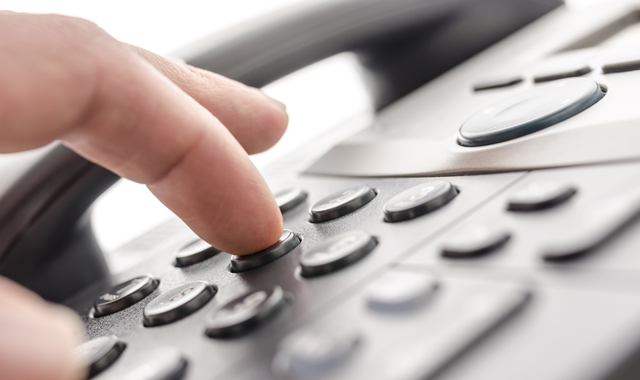The top 7 mistakes dental practices make during patient phone calls
Do you want to improve telephone techniques in your dental practice? Here are seven of the most common mistakes practices make during patient calls and how to fix them.

A potential new patient calls your practice. He has a few questions he’d like to ask before he makes an appointment, but he never gets the chance. Your office manager puts him on hold before he even says hello. When she comes back 15 minutes later, this once potential new patient is long gone.
If this is how patients are treated when they call your practice, I can guarantee it’s costing you money. Patients don’t want to be put on indefinite hold, and they certainly don’t want to feel like their phone call is a nuisance. Unfortunately, that’s how many dental practice employees see patient calls. Picking up the phone takes them away from whatever important task they’re trying to complete, and they just don’t have time to be bothered.
More from the author: 6 ways to reduce cancellations and no-shows
That attitude isn’t going to help grow your practice. Your team members should see these calls as an opportunity rather than an annoyance. They should try to schedule an appointment for every patient who calls, or solve the issue that prompted them to reach out. The problem is, many dental practice employees simply don’t have the telephone skills to make this happen.
Do you want to improve telephone techniques in your practice? Here are seven of the most common mistakes practices make during patient calls and how to fix them.
Check them out on the next page...
1. They don’t use scripts.
Your team members never know what to expect when they pick up the phone. The person on the other end could be a potential new patient who’s heard great things about the practice, or a current patient who is upset about a possible mistake on her bill. Team members should be prepared for any situation, which is why it’s important to develop well thought out scripts.
These scripts should tell team members exactly what to say, helping to put them at ease when they answer the phone. Another benefit? Scripts also help keep your practice messaging consistent. Just remember patients don’t want to talk to robots, either. Train team members to follow the script while also keeping conversations natural.
More from the author: How to help your office manager succeed
2. The person who answers the phone is clearly annoyed.
Trust me, patients can tell when you see their phone call as a nuisance. They hear the sighs and can sense the eye rolls … and it makes them uncomfortable. Don’t make potential patients feel this way. Instead, train team members to answer the phone with a smile and a helpful attitude. Patients will be thankful for the warm welcome and much more likely to make an appointment.
3. Patients are left on hold.
This is a good way to send patients to the practice down the street. No one likes to be put on hold. If the team member who answers is too busy to take the call, he should ask if he can call the patient back in 10 minutes … and then actually call the patient back in 10 minutes.
Read more on the next page...
4. The team member can’t answer questions about practice services or products.
This is a huge red flag to potential new patients. Make sure all team members are trained to answer questions about the practice and the services you provide. Put together a FAQ team members can refer to so they never feel like they’re put on the spot. This will help ensure all patients receive the same message, and will make them more comfortable entrusting your practice with their care.
More from the author: 4 ways to improve recall
5. They set up road blocks.
When a patient calls, you want to be as accommodating and as helpful as possible. Never use words like “no” or “we can’t.” Offer solutions instead. Let’s say Mr. Taylor would like to set up an appointment on a Saturday, but your practice doesn’t offer weekend hours. Instead of saying you can’t help and hanging up the phone, let Mr. Taylor know about the early morning and evening hours you offer throughout the week.
6. They just don’t listen.
Take the time to talk with patients when they call and find out how you can help. Don’t try to rush them off the phone or finish their sentences to get through the call faster. Start building relationships with patients from the moment they call and your practice will reap the rewards.
7. They’re difficult to understand.
You might not realize this, but speaking traits barely noticeable in person are pronounced over the phone. Make sure team members are trained to speak clearly, professionally, and enthusiastically. Encourage them to greet patients over the phone the same way they would in person … with a smile.
More from the author: 4 reasons patients don't go forward with treatment
It’s time to stop viewing patient phone calls as a nuisance. Look at them as the opportunity for growth that they are and train your team members on the proper techniques. Need more guidance? Feel free to contact me and consider taking my Telephone Skill Training to find out your practice’s strengths and weaknesses.
Editor's Note: Image via Shutterstock